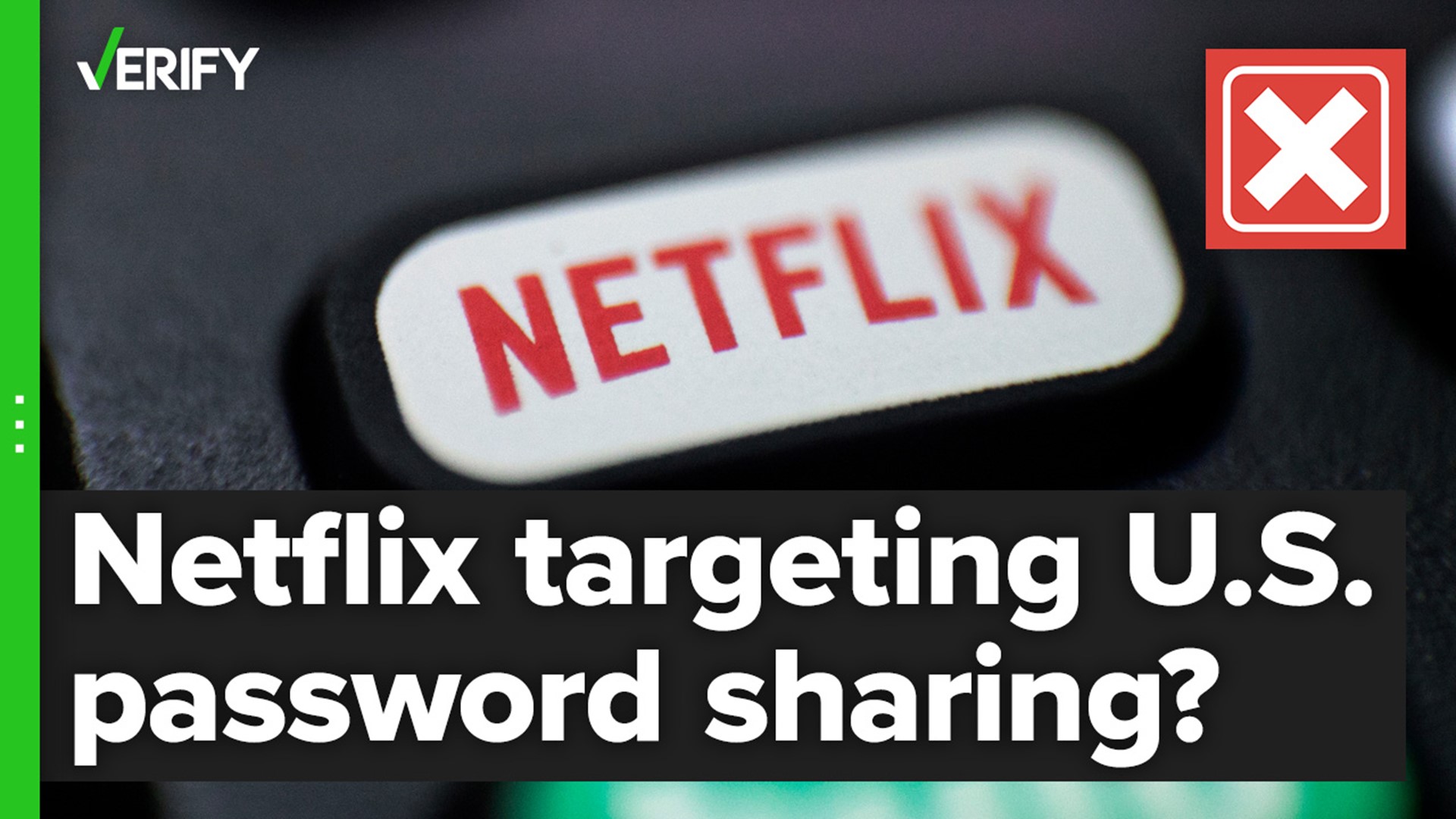This post was produced and syndicated by Wealth of Geeks.
Have we become a country of thieves?
Last week, Netflix announced plans to crack down on password sharing for users outside of the same household - at least in certain countries. But once it takes hold in Chile, Costa Rica, and Peru, can the United States be far behind?
An estimated 11% of subscribers share their passwords. It's so much a part of our streaming community that trading passwords or asking for a log-in are second nature. It never felt like a wild or unethical thing to do with an over-saturation of streaming services and no general bundled prices (i.e., cable).
As download sites like LimeWire and Kazaa exploded in the 2000's, piracy became a heated issue. Before every movie, in addition to the copyright laws flashed across the screen, there was almost always a piracy commercial where the thief was brought to justice. And while that might have merely discouraged certain do-gooders from illegally downloading movies, music, and TV, it has certainly affected how we approach sharing passwords on streaming sites.
We got caught, and Netflix wants us to know they're not mad, just disappointed.
It's Not a Bug, It's a Feature
"We've always made it easy for people who live together to share their Netflix account, with features like separate profiles and multiple streams," the company said in a statement on their website. This light scolding permeates the press release, which outlines two new plan add-ons.
Users can add an Extra Member for only $3, giving legitimacy to that user who has been leeching off of your profile. These extra members will not be counted in the overall subscriber count, which currently hovers over 220 million and is expected to rise gradually in the next few months.
A $3 upcharge is hardly the worst financial news to enjoy a streaming service that right now costs $10-20 a month, but it could feel like an unnecessary price gouge from a greedy company only interested in their bottom line.
An additional transfer feature allows users to share their account information to a new paid account without losing their viewing history, My List, and personalized recommendations.
Again, lest you start to panic - for the moment, this is not happening in the United States.
Where Netflix Goes…
Will the other streaming services follow suit? Or is Netflix's widely talked about financial situation a different beast altogether?
Netflix believes password sharing is "impacting our ability to invest in great new TV and films for our members," but wouldn't those same members rather sharing continue, and less new programming is produced?
Are we going to bankrupt Netflix by password sharing?
Netflix is trying to compete in a rapidly growing streaming market, with Amazon Prime, Disney+, and Paramount+ coming out swinging: offering popular original programming and an impressive catalog of classics. But, since losing TV series like Friends and The Office to their competitors, one has to ask what exactly are the benefits of a Netflix account?
In 2013, Netflix still had DVDs (believe it or not, they still do), a subscription cost less than $10, and Hulu was the only competitor. Around this time, the streaming service created a groundbreaking original series called Orange is the New Black which got everyone talking.
The success of that series changed forever the way people interacted with Netflix. Although it might have been their plan all along, users did not see the streaming and DVD mail service as anything other than a digital Blockbuster. But Netflix wanted to be a Hollywood studio.
Since then, they have produced hundreds of series, comedy specials, music documentaries, and movies, often competing with their own new releases. Last month alone saw premieres of Inventing Anna, The Texas Chainsaw Massacre, Love is Blind, Space Force, Tyler Perry's A Madea Homecoming, and Murderville.
Isn't that too much? Additionally, they've teased the final season of Stranger Things, perhaps their most successful show of all time.
If the lines between Netflix and network television have blurred considerably, what does that mean for Netflix's long term?
Streaming the Future
Business is good for the streaming giant, but it needs to be better if they want to survive. With fourth-quarter profits at $607-million and revenue up 16%, it's not enough growth to justify their spending habits and high debts.
These new changes will appear abroad first. As mentioned, Netflix is testing its new features in Chile, Costa Rica, and Peru before bringing them home. As a result, the company is expecting a largely negative reaction, like when they announced escalating prices in early 2022.
There is no confirmed date yet when these changes will make their way to the States, nor do we know if the Add a Member price will also be $3 here. It is too soon to tell if these new policies will hurt the fragile company or if users will simply concede to these new rules when confronted by the ethical dilemma of password sharing.
Perhaps the company would be better served with less original programming and a return to what made it so popular before: access to shows and movies people love, a Blockbuster of possibilities right from your home.
More Articles From the Wealth of Geeks Network:

